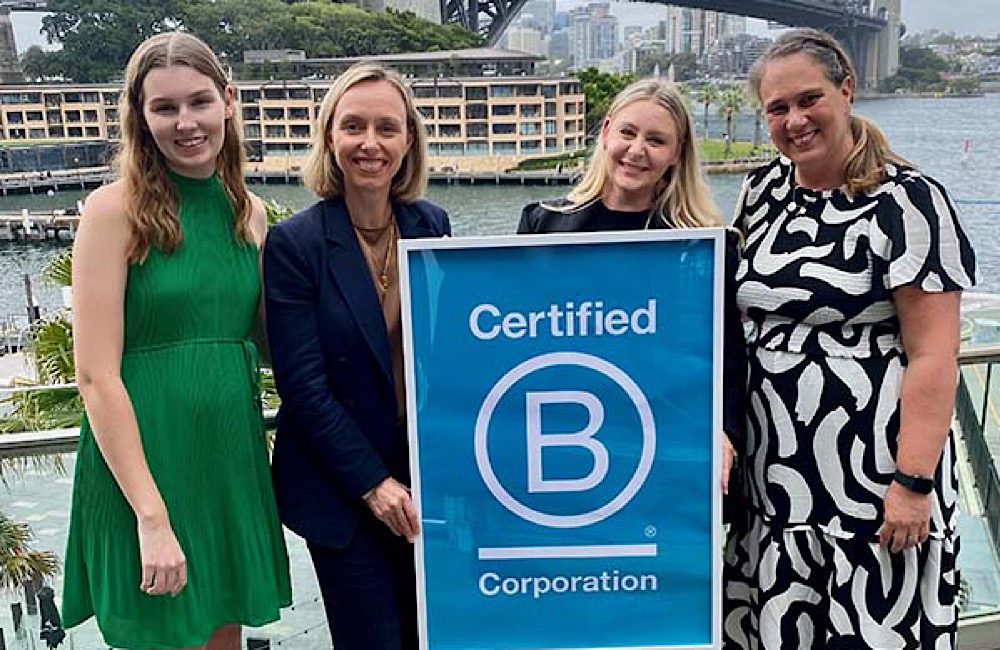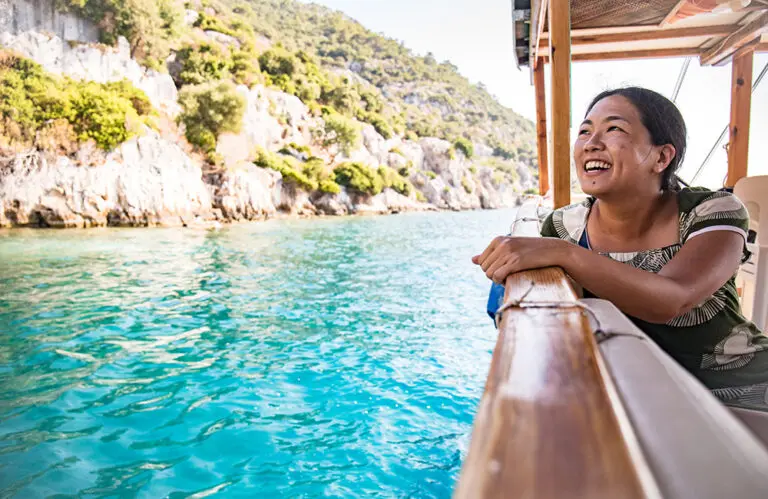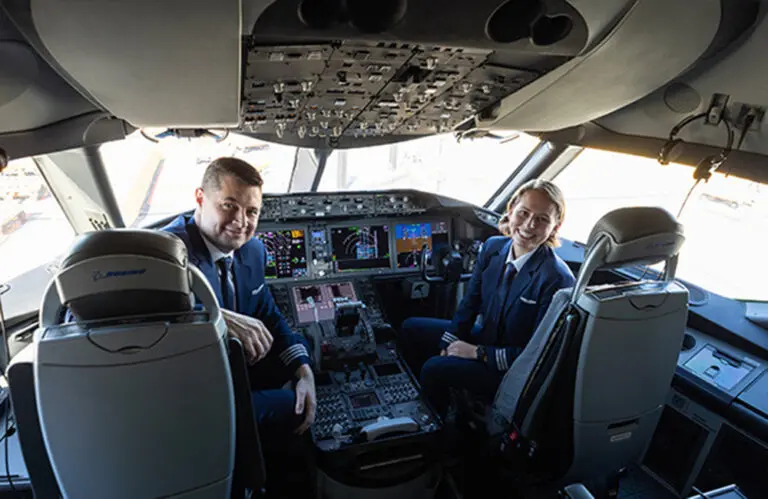With over 7,800 certified B Corporations (or B Corps) worldwide, over 650 of which are companies in Australia and Aotearoa New Zealand, you probably have seen the B Corp logo or at least heard the term. But what exactly is a B Corp and what does it mean for your business? Karryon chats to two B Corps in the travel industry, GTI Tourism and Intrepid Travel to find out.
The B Corp logo is a capital B circled and underlined. If it were red, it would look much like a mark you’d find on a school paper. So why a B and not an A?
According to B Lab, the non-profit that certifies B Corps, the B stands for ‘benefit for all’. This means B Corps consider the impact of their business on employees, the community, and the environment alongside traditional profit margins. The goal is to create a more sustainable and responsible business landscape.
The companies and the system aren’t perfect, and perhaps that’s why it’s a B and not an A. If you get a B in school, you’ve demonstrated that you’ve understood the task beyond the average, but there’s still room for improvement.
“B Corp is just the start of the race,” GTI Tourism Managing Director Sarah Anderson tells Karryon.
A tourism marketing, destination representation and PR agency, GTI Tourism achieved B Corp status earlier this year.
“We wanted to examine how we impact people and community and planet. And we wanted to use our role in the industry to advocate for bigger entities to take a closer look at their operations and purpose,” Anderson says.
“The travel industry has a profound impact on the destinations and communities it touches.
“It’s one of the biggest industries in the world and interfaces with so many parts of it. And if we change how the travel industry works, and make sure it prioritises people and the environment, then we’re going to have a much healthier, prosperous planet.”
The B Corp journey: taking the first step
While becoming a B Corp involves a commitment to high standards, it’s designed to be a supportive and rewarding process. As Anderson highlights, the key is to avoid feeling overwhelmed – the B Lab team and resources are there to guide you every step of the way.
“Because of travel’s almost exponential reach and the complexity of the issues we’re talking about, it can get overwhelming, but you have to start somewhere,” she says.
“Just go online and start where you can and don’t feel guilty that you’re not further ahead in the process.
“It doesn’t matter where a company is, they can start today, and use B Corp as a free measurement tool.’
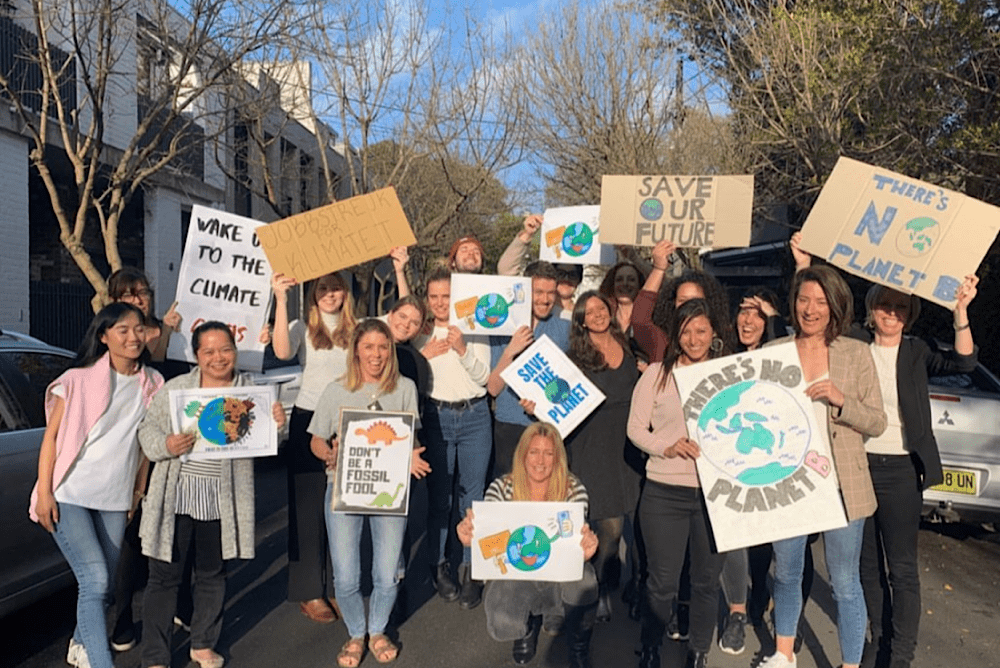
GTI Tourism’s Kerrin Trenorden was tasked with managing the company’s application for B Corp certification and saw through the process from its start two years ago.
According to Trenorden, there are five impact measures that B Corp looks at: community, environment, customers, governance and workers.
“A company starts by registering for a free B impact assessment. And then it’s a matter of answering a set of questions that fall under those five categories and getting graded on each.
“When you get the results, you can see where you’re doing well and what needs improvement. That score is a starting point to prompt a conversation about your company’s purpose and processes. It’s this beautiful way of looking at your overall business, rather than just having a score on a piece of paper.
“B Corp is such a great framework because you reassess every learning point,” Trenorden says.
Both Trenordern and Anderson agree that committing the time to that initial assessment is the easy part. What comes next takes time.
“You need to have senior decision makers with authority over the business involved because policies need to be examined and rewritten, and processes need to change. And that takes time and consideration,” Anderson says.
Beyond the buzzword: Quantifying the return on investment
Is it worth it? Anderson says yes.
“Sustainability measures have been proven time and time again to have a positive impact on the bottom line. So while there might be some initial upfront investment, sustainability always makes business sense from a number-crunching perspective. And it also makes sense from a society perspective.
“There are plenty of test cases that will prove that the money will flow if you do the right thing by all of your stakeholders.”
And according to Anderson, the management of the tourism industry has a responsibility to not leave it up to the consumer.
“There are a lot of very profitable companies in our industry and sometimes if a cash-strapped consumer can’t make the leap, we’ve got corporate responsibility to take this action.
“We’ve got to stop looking at the tourism industry through this very narrow lens of immediate profit. That can be a race to the bottom.
“GTI is really fortunate that we can move forward in a way that measures the happiness of our team, the happiness of our clients, our impact on the local community and our planet, and our profit and we can thrive on all those measures.“
B Corp: Not a one-and-done thing
Intrepid Travel first became B Corp certified in 2018. In 2021, it was recertified with a higher score (up from 82.7 to 91.2). And by November this year, the company is set to face recertification again. Leading the process is Sara King, Intrepid Travel’s General Manager Purpose.
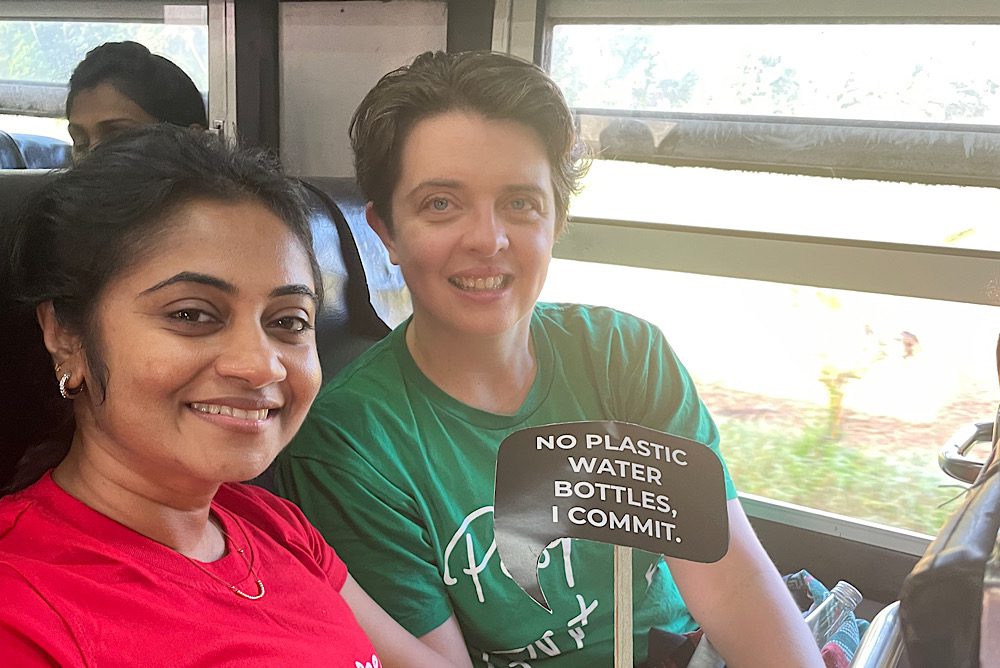
It’s a rigorous process, especially for a company like Intrepid which has over 40 businesses in its group, says King.
“To recertify we have to answer 200 odd questions and we need to make sure that we’re answering those questions consistently from all of those businesses.
“It’s challenging because as you grow, you need to embed your practices in your new businesses, and then deepen your impact in your existing ones as well.”
But to King, the process itself has transformative power.
Intrepid Travel has just completed a significant, 18-month-long, measurement of its supply chain. Doing this required creating a system to collect data in some 29 different countries with varying levels of understanding of some of the issues.
“Measurement takes a long time. And I think people kind of jump straight to the actions. But what I’ve really come to appreciate is this measurement piece is an action in and of itself,” says King.
“Having a conversation with a hotel operator about whether they have policies around single-use plastic is awareness-raising action, and that can be an education point and a change point for people.
“Having businesses keep that in mind is really important.”
The value proposition
In Intrepid’s last certification, it wanted to show that its products created an impact on people and its customers over and above just being ‘satisfied customers’. So the company surveyed its customers, asking things like, ‘Did you feel more educated or more knowledgeable about the destination after this trip?’, ‘Did you feel more connected to each other?’, ‘Did it improve your mental health and physical health outcomes?’.
“Through this, we were able to show B Corp that over 90% of our customers said that they came out of our trips better off mentally and physically, that they felt more connected, more educated and knowledgeable,” King tells Karryon.
“But there is an opportunity to bring that feedback into the business and say to the team in product development or customer service if they’re having a bad day that our products create these kinds of deeper impacts for people.
“The more that we can connect people in the world, the more that people feel like they understand each other, that has wide ranging implications. It’s giving people the why of what they do.”
B Corp or be left behind
Even if you’re not a B Corp yourself, you can leverage the movement’s power to elevate your travel offerings. Partnering with B Corp hotels, tours, and destinations allows you to showcase your commitment to responsible travel by association. This strengthens your reputation with customers who care. Plus, B Corp certification acts as a pre-vetting system, saving you time and effort. You can confidently source high-quality, ethical travel experiences for your clients, knowing they align with responsible travel practices.
Want to learn more? Explore resources and embark on your B Corp journey by visiting the B Lab website.


